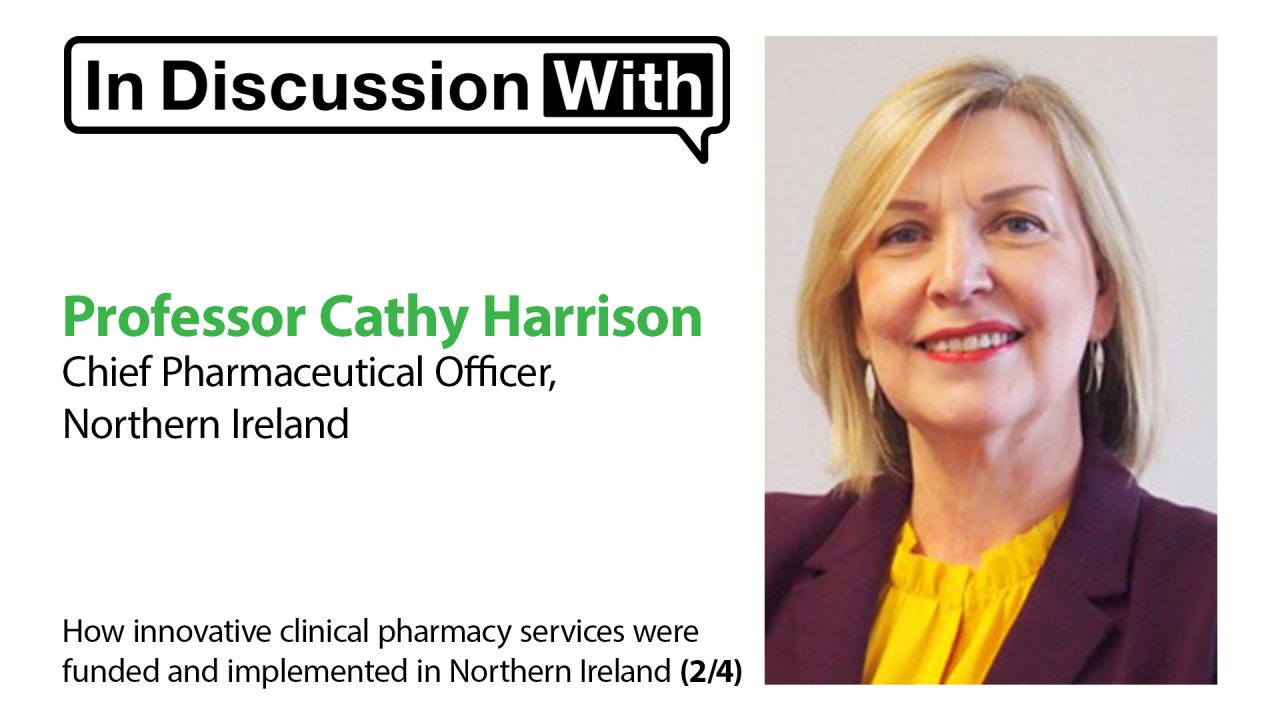Advertisment
How innovative clinical pharmacy services were funded and implemented in Northern Ireland

Clinical pharmacy services in Northern Ireland are well-developed and delivered by a skilled and growing workforce, about 30% of which are now independent prescribers, according to Professor Cathy Harrison, Chief Pharmaceutical Officer at the Department of Health in Northern Ireland.
There is a skilled and growing clinical pharmacy workforce in Northern Ireland that is available to take on advanced practice roles, explains Professor Harrison. Clinical pharmacists are already offering faster access to care, improving the safe and cost-effective use of medicines, and optimising patient outcomes. They are connecting individuals with essential medicines and providing accessible clinical services in community pharmacies, she says.
Independent prescribers now comprise about 30% of the pharmacist workforce and the number is growing. About 150 independent prescribing training course places are commissioned each year for pharmacists who are already on the pharmaceutical register. From 2026 onwards all new registrants will come out of university with an independent prescribing qualification. “We estimate that that is going to increase our number of prescribers in Northern Ireland up by a further 1,000 by the end of this decade. So, we’re going to see a tremendous acceleration, really, in the number of prescribers … in the coming years”, predicts Professor Harrison.
Funding strategies and successful initiatives
“The funding that we secured for improvement and for advancement in pharmacy practice in Northern Ireland didn’t happen overnight and it didn’t all happen at the same time. It was really, truly incremental”, says Professor Harrison.
Taking pharmacists working in General Practices as an example, services started with a small number of pharmacists working without a structured employment model. A more strategic approach was then evaluated in pilot sites. Later, formal research on the role of General Practice pharmacists and their value was commissioned, she explains. Similar studies were being done by academic institutions elsewhere and so the team in Northern Ireland was able to look at the evidence, both local and national, and put together business cases for a much bigger scale-up of General Practice pharmacy.
“From 2015 to 2020, I have to say that our commissioners secured sufficient funding to provide every General Practice in Northern Ireland with the equivalent of a full-time General Practice pharmacist. So, tremendous investment, but it started small, built the evidence base and then scaled up”, she says. Moreover, “it was a substantial amount of money and they’re fully funded posts”, she adds.
The business case was approved on an “invest to save” basis. This means that they had to show that pharmacists in those roles would provide both financial and patient safety benefits as well as other benefits for the practice such as freeing up time for general practitioners (medical colleagues), acknowledges Professor Harrison.
“I’m very pleased to say the evaluation did show tremendous benefits; it showed that we had a good return in investment”, she says. This project showed the value of starting with a pilot, looking at all your research, developing the business case for a larger scale-up but still keeping an emphasis on evaluation because it is a significant investment, she emphasised.
Another area where successful developments have been introduced is Community Pharmacy. The Pharmacy First service in community pharmacies, which allows patients to seek advice and treatment for common illnesses without visiting a general practitioner. This has allowed community pharmacists to develop their clinical skills and has the flexibility to operate either as a prescribing service or through the use of Patient Group Directions. Once again, Professor Harrison advocates the same approach – pilot, evaluate, build the business case and then scale-up.
The Medicines Optimisation and Innovation Centre (MOIC) is commissioned to carry out the evaluations because the Centre is able to provide the robust evidence bases required for business cases, says Professor Harrison.
This interview was based on the keynote lecture the Professor Harrison gave at the European Society of Clinical Pharmacy (ESCP) Symposium in 2024 in Krakow, Poland.
About Cathy Harrison
Professor Cathy Harrison is the Chief Pharmaceutical Officer for Northern Ireland, working at the Department of Health.
She studied pharmacy at Liverpool John Moore’s University and later completed a Master’s degree at Queen’s University, Belfast. After graduation in 1989 she worked in community pharmacy in England and Northern Ireland before joining the Department of Health in 2005 as Principal Pharmaceutical Officer. She was later promoted to Deputy Chief Pharmaceutical Officer and appointed Chief Pharmaceutical Officer in January 2020.
Professor Harrison leads a wide-ranging work programme involving pharmacy and medicines policy and legislation. She is committed to realising pharmacy’s greater contribution to better health outcomes for patients and more effective utilisation of health resources.
She is honorary Professor of Practice at Queen’s University Belfast.
Read and watch the full series on our website or on YouTube.






